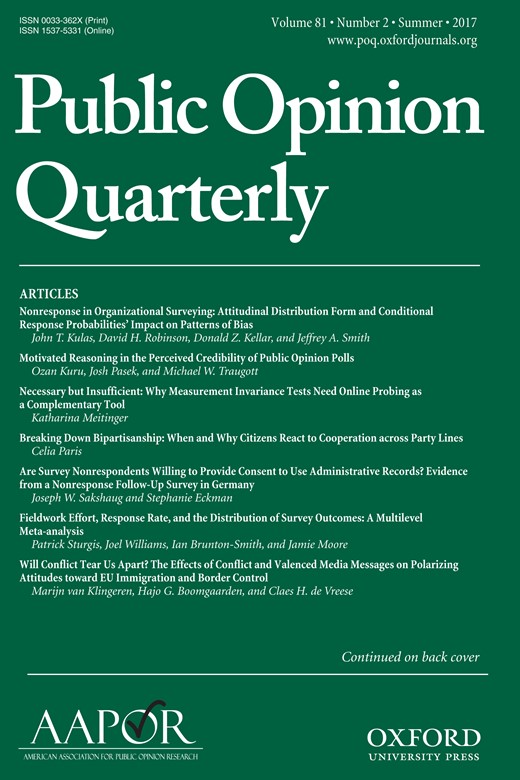-
Views
-
Cite
Cite
Ozan Kuru, Josh Pasek, Michael W. Traugott, Motivated Reasoning in the Perceived Credibility of Public Opinion Polls, Public Opinion Quarterly, Volume 81, Issue 2, Summer 2017, Pages 422–446, https://doi.org/10.1093/poq/nfx018
Close - Share Icon Share
Abstract
How do citizens’ motivations shape their perceptions of poll reports? Increasingly, scholars are finding that citizens engage in motivated reasoning, whereby they discredit information that differs from their preexisting attitudes. The perceived credibility of opinion polls might be prone to similar motivational processes, as individuals could discount results suggesting that they hold minority opinions. We assess whether motivated reasoning influences the credibility of poll results and whether features of the presentation of those results might moderate and potentially counteract these motivational processes. In an online survey experiment conducted with a national sample of American adults (N = 1,211), respondents were exposed to poll reports about both gun control and abortion and were asked to rate the credibility of these polls. For each report, three aspects of presentation were randomized: the direction of the poll result (majority supports/opposes), the news source reporting the poll (FoxNews/MSNBC), and the amount of methodological detail reported (none/a lot). In line with theories of motivated reasoning, respondents who held issue positions that contradicted the results of the polls found those polls less credible. Further, this decreased credibility was particularly evident among individuals with high levels of political knowledge. Source credibility cues—such as the ideological alignment of source and respondent and the presence of a message from an unexpected source—did not moderate this relationship and were unrelated to poll credibility. However, evidence suggests that methodological disclosure could moderate the motivational biases in credibility assessments.





